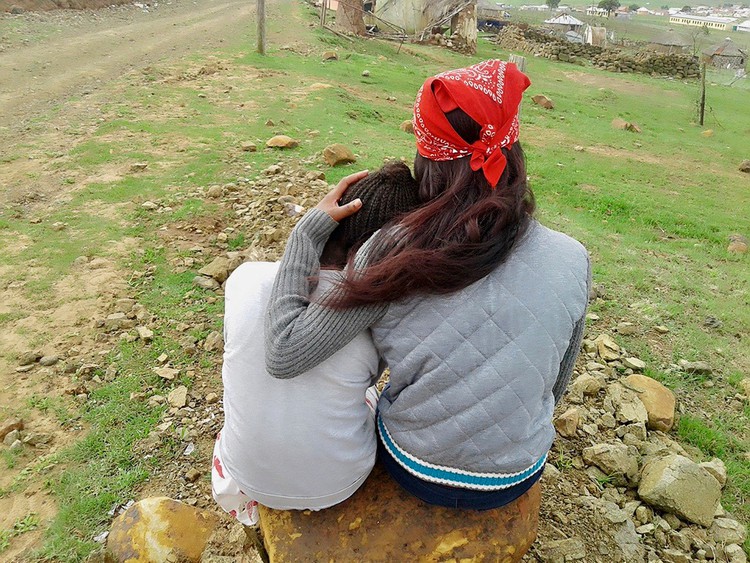“No one was going to believe me” says rape survivior
Eastern Cape women struggle with prosecution of rapists
It is almost two years since Babalwa* laid rape charges against her uncle. She says she was repeatedly raped by him and he made her pregnant. She had to drop out of school. She has already waited for over a year for the results of a paternity test which she believes will show that her uncle is the father of her child.
Police spokesperson Jackson Manatha in Butterworth, Eastern Cape, said he could not say how much longer the paternity test results would take. He said the tests are analysed in Cape Town and there is nothing the police can do but wait.
Babalwa, finding it unbearable to see the man she says raped her, has moved to Johannesburg.
In another case, also in Nqamakhwe town, Sikie, a rape survivor, said the investigating officer told her that paternity test results take close to three years. Sikie opened her case in May but police have still not done the test.
Manatha said Sikie’s child was not cooperating. “The DNA must be done from the child, mother and father,” he said.
Sikie accuses her cousin, who was 29 at the time, of raping her when she was 17 and making her pregnant. She is now 46, but she says she is still traumatised by the rape. She did not report it before because of the stigma.
“I had scars on my body that day as proof that I didn’t want to have sex with him, but then no one was going to believe me. I know for a fact that my mother was going to blame me,” she said. “My mother was very strict … a hard person to approach.”
“When the incident occurred, I was doing standard seven. I failed. I really struggled to finish high school. As a result I got married when I was doing standard nine. Finishing standard 10 was a miracle.”
She said she decided to get married because she was the only girl in her village with a child. “I got married for all the wrong reasons and I don’t even know how I survived many years in my marriage,” said Sikie, who is currently divorcing her husband.
“There were days when I would cry for no reason and people would not understand. They didn’t know the pain I was feeling inside. There were times when I would struggle to support my daughter and I would remember how I got her,” she said, looking at the ground.
“My parents knew who was the father of my child but they never questioned him even though they knew he was older than me,” said Sikie.
In 2011 Sikie said she confronted her rapist. “I wanted him to know that he destroyed me,” she said.
She said he asked the family to forgive him for making her pregnant and offered to pay R1,000 for damages which her parents accepted.
“I try to be strong but the pain is too deep,” she said.
* Names have been changed to protect the identities of people close to the subjects of this article.
Next: Shack dwellers raise their own funds for flood relief
Previous: Concourt judgment will help keep families together
© 2019 GroundUp.
This article is licensed under a Creative Commons Attribution-NoDerivatives 4.0 International License.
You may republish this article, so long as you credit the authors and GroundUp, and do not change the text. Please include a link back to the original article.



